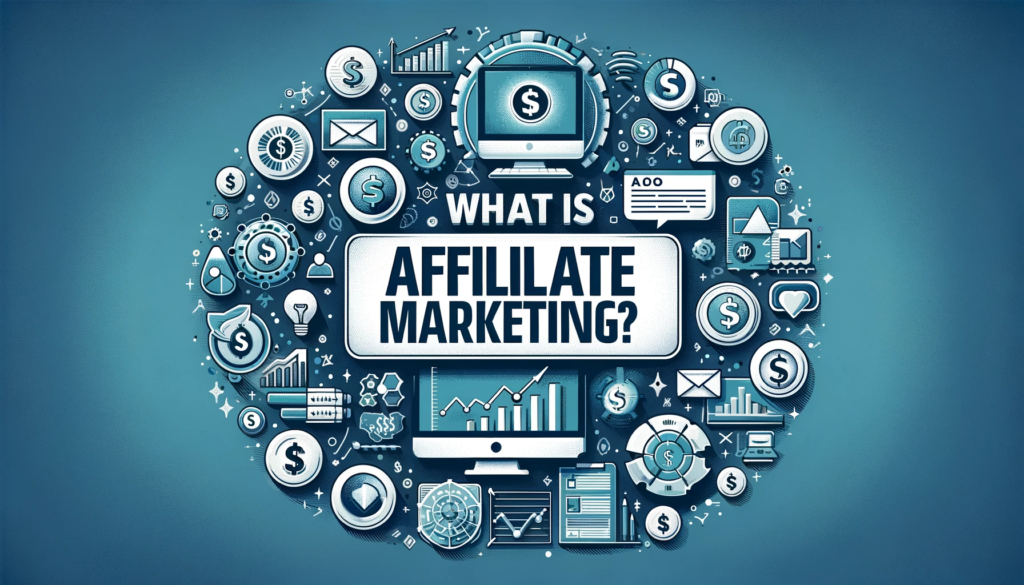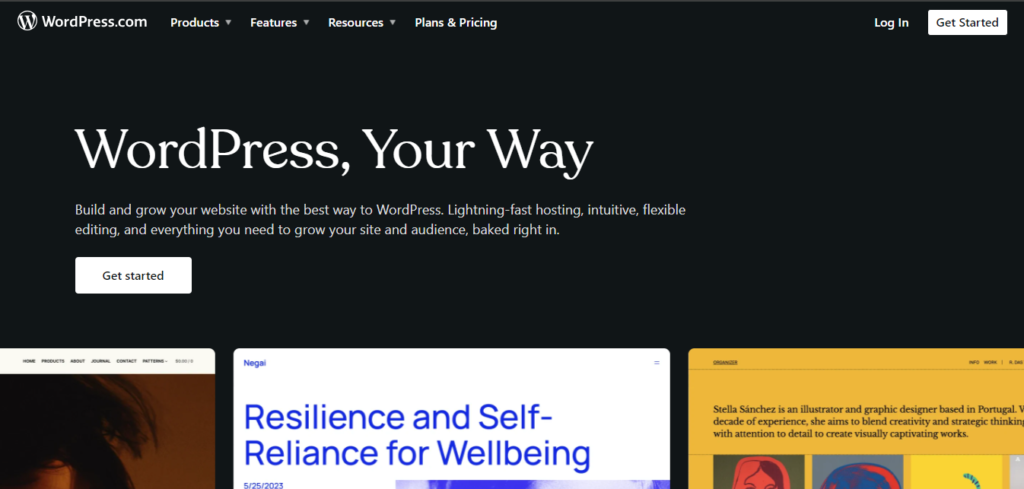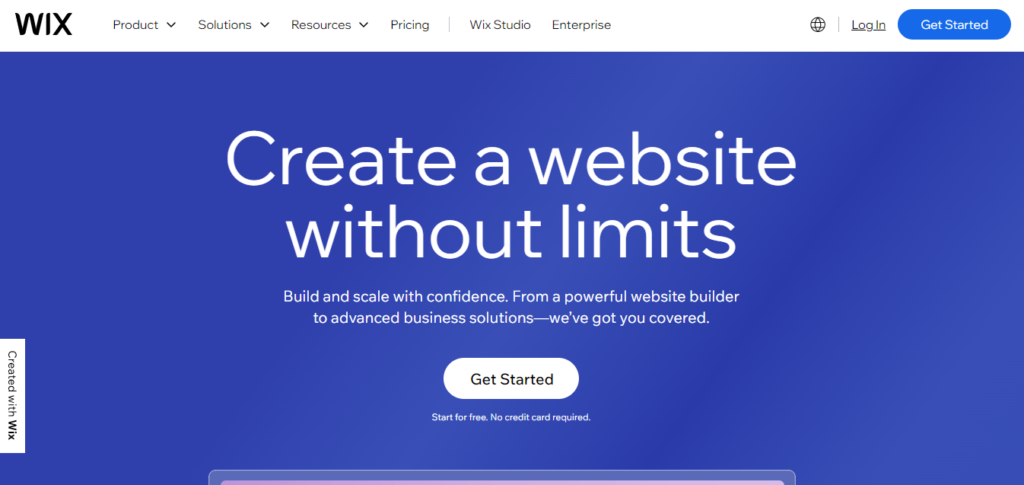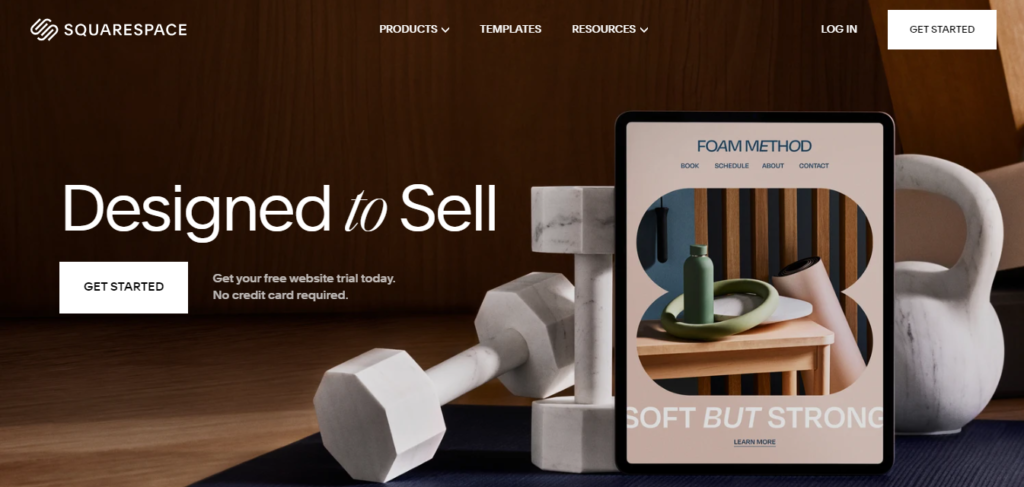
Affiliate marketing has become a lucrative avenue for many entrepreneurs and digital marketers. A professional and effective website is crucial to succeed in this field. Choosing the right website builder can significantly impact your success. This comprehensive guide will help you navigate through the best website builder for affiliate marketing, ensuring you make an informed decision.
What Is Affiliate Marketing?

Affiliate marketing is a performance-based marketing strategy where a business rewards affiliates (partners) for driving traffic or sales to their website through the affiliate’s marketing efforts. It involves promoting products or services of other companies and earning a commission for each sale or action generated through your referral. The key components of affiliate marketing include:
- Affiliate (Marketer): The person promoting the products or services.
- Merchant (Advertiser): The company offering the products or services.
- Network: The intermediary platform connecting affiliates with merchants.
- Consumer: The end-user who purchases the product or service.
Why Is It Important To Choose The Right Website Builder For Affiliate Marketing?

Your website is the cornerstone of your affiliate marketing strategy. A well-designed, user-friendly, and optimised website can attract more visitors, keep them engaged, and increase conversions. Here’s why choosing the right website builder is essential:
- User Experience: A good website builder offers templates and features that enhance user experience, making it easier for visitors to navigate and find relevant information.
- SEO Optimization: Search engine optimisation (SEO) is crucial for driving organic traffic to your site. A quality website builder provides SEO tools and capabilities to improve your website visibility on search engines.
- Customization and Flexibility: It is vital to be able to customize your website to match your brand and adapt to your evolving needs. A flexible website builder allows for easy modifications and integrations.
- Cost-Effectiveness: As an affiliate marketer, managing costs is crucial. The right website builder offers affordable plans with valuable features, ensuring you get the best return on investment.
What Are The Criteria For Selecting The Best Website Builder?
When evaluating website builders for affiliate marketing, consider the following criteria:
- Ease of Use: The platform should be user-friendly, even for those with limited technical skills.
- Customisation Options: Look for a builder offering extensive customisation options to tailor your site to your needs.
- SEO Features: Effective SEO audit tools are essential for improving your website’s search engine ranking.
- Performance and Speed: A fast-loading website is crucial for retaining visitors and improving user experience.
- Responsive Design: Ensure the builder offers mobile-friendly templates, as most web traffic comes from mobile devices.
- Customer Support: Reliable customer support can save you time and frustration when dealing with technical issues.
- Pricing: Compare pricing plans to ensure you get the best value for your money.
What Are The Tips For Optimizing Affiliate Marketing Websites?
Optimizing an affiliate marketing website involves several strategies to enhance traffic, improve user experience, and increase conversion rates. Here are some key tips:
- Quality Content: Create valuable, informative, and engaging content that resonates with your audience.
- SEO Optimization: Use relevant keywords, meta tags, and high-quality backlinks to improve your site’s search engine ranking.
- Email Marketing: Build an email list to nurture your audience and promote affiliate products.
- Social Media: Leverage social media platforms to drive traffic and engage your audience.
- Analytics: Regularly monitor your website’s performance using analytics tools to identify areas for improvement.
- A/B Testing: Experiment with different content, designs, and CTAs to see what works best for your audience.
Best Website Builder For Affiliate Marketing
Selecting the best website builder for affiliate marketing depends on your specific needs and preferences. Here are the top 5 options:
WordPress

WordPress is an open-source content management system (CMS) that allows users to build and manage websites. It is renowned for its flexibility, extensive plugin ecosystem, and active community support. Users have complete control over their site as a self-hosted platform, making it a popular choice for affiliate marketers who need customised and scalable solutions.
Pros:
- Flexibility: WordPress offers unparalleled customisation options, allowing users to tailor their sites to their needs.
- Plugins: Over 50,000 plugins are available, allowing users to add various functionalities, including SEO tools, analytics, and affiliate marketing plugins.
- Community Support: A vast community of developers and users provides extensive resources, tutorials, and forums for troubleshooting and improvement.
- SEO-Friendly: Built-in features and plugins like Yoast SEO enhance search engine optimisation, which is crucial for driving organic traffic.
- Themes: Thousands of free and premium themes are available, ensuring your site’s professional and attractive design.
- Control: As a self-hosted platform, you have complete control over your site’s data, appearance, and functionality.
Cons:
- Learning Curve: Beginners may find WordPress complex, especially when dealing with technical aspects such as hosting and security.
- Maintenance: Users are responsible for site maintenance, including updates, backups, and security measures.
- Cost: While the software is free, users must pay for hosting, domain registration, and premium themes or plugins, which can add up.
- Security Risks: Being a popular CMS, hackers often target WordPress sites, necessitating strong security measures and regular updates.
Best For:
- Experienced Users: Those with some technical knowledge or willingness to learn will benefit most from WordPress flexibility and control.
- Scalable Businesses: WordPress is ideal for affiliate marketers looking to grow their business, as It can handle significant traffic and complex needs.
- Custom Solutions: These are perfect for users who need highly customised features and designs to stand out in the competitive affiliate marketing space.
WordPress stands out as a powerful and versatile website builder for affiliate marketing, offering extensive customisation and scalability at the cost of a steeper learning curve and maintenance responsibilities.
Wix

Wix is a popular website builder known for its user-friendly interface and flexibility, making it an excellent choice for affiliate marketing. It offers a range of templates, drag-and-drop functionality, and various customisation options, allowing users to create professional-looking websites without any coding knowledge.
Pros:
- Ease of Use: Wix’s intuitive drag-and-drop editor makes it accessible for beginners.
- Customisation: Offers extensive customisation options with hundreds of templates and design elements.
- SEO Tools: Built-in SEO tools help optimise your site for search engines.
- App Market: A wide range of apps and integrations to enhance site functionality.
- Mobile Optimization: Automatically creates a mobile-friendly version of your site.
- Support: Provides robust customer support through various channels, including email, phone, and a comprehensive knowledge base.
Cons:
- Limited Flexibility: While great for beginners, advanced users might find the customisation options somewhat restrictive compared to other platforms.
- Pricing: Higher-end plans can be costly, especially if you need additional features or apps.
- Ads on Free Plan: The free plan includes Wix-branded ads on your site.
- Loading Speed: Sites built on Wix sometimes have slower loading times than those built on more performance-focused platforms.
Best For:
- Beginners: Ideal for those new to website building and affiliate marketing due to its ease of use and comprehensive support.
- Small Businesses: Great for small business owners who need a professional-looking website quickly.
- Bloggers: Perfect for bloggers looking to monetise their content through affiliate marketing.
- Freelancers: This option is suitable for freelancers who want to create a personal brand website without investing too much time in technical aspects.
Wix is a versatile and accessible option for affiliate marketers, balancing ease of use and functionality. While it may not cater to the needs of more advanced users or those requiring highly specialised features, it provides a solid foundation for effectively creating and managing an affiliate marketing site.
Squarespace

Squarespace is a popular website-building platform offering comprehensive tools for creating professional and visually appealing websites. It is known for its user-friendly interface, extensive design options, and robust e-commerce capabilities. Due to its customisable templates, SEO audit features, and integration with various marketing tools, Squarespace is particularly suitable for affiliate marketing.
Pros:
- User-Friendly Interface: Squarespace’s drag-and-drop functionality makes it easy for users to build and manage their websites without extensive technical knowledge.
- Professional Templates: The platform offers sleek, customisable templates tailored to fit various niches and brand aesthetics.
- Built-in SEO Tools: Squarespace SEO tools that help optimise websites for search engines, improving visibility and traffic.
- Responsive Design: All templates are mobile-friendly, ensuring that websites look great.
- E-commerce Integration: Squarespace supports e-commerce, allowing affiliate marketers to sell products directly from their website if needed.
- Analytics and Reporting: The platform provides comprehensive analytics to track website performance, helping users understand visitor behaviour and optimise their marketing strategies.
- 24/7 Customer Support: Squarespace offers reliable customer support through live chat and email, ensuring users can get help whenever needed.
Cons:
- Pricing: Squarespace is relatively expensive compared to other website builders, which might be a consideration for budget-conscious users.
- Limited Customization: While the templates are customisable, some limitations exist, particularly for users who need highly specific design elements.
- Learning Curve: Despite its user-friendly interface, some users may find the initial setup and learning process slightly challenging.
- No Free Plan: Unlike some competitors, Squarespace does not offer a free plan, which means users must commit to a paid subscription from the start.
Best For:
- Design-Oriented Users: Those who prioritise aesthetics and want a visually stunning website will find Squarespace’s templates highly appealing.
- Small to Medium Businesses: Ideal for businesses that need a professional online presence that can expand into e-commerce.
- Bloggers and Content Creators: Squarespace’s robust blogging features and SEO tools make it a great choice for affiliate marketers focused on content creation.
- E-commerce Entrepreneurs: Users looking to combine affiliate marketing with product sales will benefit from Squarespace’s e-commerce features.
Squarespace is a powerful and versatile website builder, making it a strong choice for affiliate marketers who value design, ease of use, and integrated marketing tools.
Shopify

Shopify is a leading e-commerce platform that enables individuals and businesses to create and manage online stores. With its robust features and user-friendly interface, Shopify has become popular for affiliate marketers looking to set up websites quickly and efficiently. The platform offers a wide range of customisable templates, integrations, and tools to help users optimise their sites for affiliate marketing.
Pros:
- User-Friendly Interface: Shopify’s intuitive design makes it easy for users, even those with little technical knowledge, to create a website and manage it.
- Customisable Templates: Various professional templates allow users to create visually appealing and unique websites tailored to their brand.
- Integrated Payment Solutions: Shopify supports multiple payment gateways, simplifying the checkout process for customers.
- SEO Tools: Built-in SEO features help improve search engine rankings, driving organic traffic to affiliate sites.
- App Store: Access to thousands of apps and plugins enables users to add functionality and automate tasks, enhancing the overall efficiency of their affiliate marketing efforts.
- 24/7 Customer Support: Reliable customer service ensures that users can get assistance whenever they encounter issues.
- Secure Hosting: Shopify provides secure and reliable web hosting, protecting user data and ensuring fast website performance.
Cons:
- Monthly Fees: Shopify charges a monthly subscription fee, which can be a significant expense for new affiliate marketers.
- Transaction Fees: Users incur transaction fees on sales unless using Shopify Payments, which can eat into profits.
- Limited Customization: While customisable, some advanced customisations may require coding knowledge or hiring a developer.
- Add-On Costs: Many useful apps and plugins come with additional costs, which can add up quickly.
Best For:
- Beginners: Shopify is ideal for those new to affiliate marketing, thanks to its user-friendly interface and extensive support resources.
- Small to Medium Businesses: Shopify’s features can greatly benefit businesses looking for a comprehensive solution to build and manage their online presence.
- Marketers Needing Quick Setup: Shopify’s streamlined setup process is advantageous for marketers needing to launch their affiliate sites quickly.
Shopify is a versatile and powerful platform for affiliate marketers. It offers a balance of ease of use, functionality, and scalability.
Weebly

Weebly is a popular website builder known for its user-friendly interface and robust features, making it an excellent choice for affiliate marketing. Owned by Square, Weebly offers a range of tools that help users create professional websites without needing extensive technical skills. Its drag-and-drop editor, customisable templates, and integrated e-commerce options make it a versatile platform for various types of websites, including blogs, portfolios, and online stores.
Pros:
- User-Friendly Interface: Weebly’s drag-and-drop editor is intuitive, allowing users to add elements like text, images, and forms easily.
- Customizable Templates: This site offers a wide selection of templates that can be tailored to fit the specific needs of an affiliate marketing site.
- Integrated E-commerce: Built-in e-commerce tools allow users to add product listings, manage inventory, and process payments directly through their website.
- SEO Tools: This tool provides basic SEO features, such as customizable meta descriptions, titles, and URLs, to help improve search engine rankings.
- Mobile-Responsive Designs: All templates are mobile-responsive, ensuring that websites look great on any device.
- Analytics: Built-in analytics tools provide insights into website traffic and visitor behaviour, which is crucial for optimising affiliate marketing strategies.
- Support and Resources: Weebly offers extensive customer support, including live chat, email support, and a comprehensive knowledge base.
Cons:
- Limited Customization: While Weebly offers customisation options, it may not be as flexible as other platforms like WordPress, particularly for advanced users.
- Limited Scalability: Weebly is ideal for small to medium-sized websites but might not be the best choice for larger, more complex sites.
- Transaction Fees: If you use Weebly’s e-commerce features, transaction fees may apply, which can cut into affiliate earnings.
- App Integration: The range of third-party app integrations is more limited than other website builders.
Best For:
- Beginners: It is ideal for those new to website building and affiliate marketing due to its ease of use and straightforward setup process.
- Small Businesses: Suitable for small businesses and individuals looking to create a professional-looking website without a significant time or financial investment.
- Bloggers: Excellent for bloggers who want to earn money with affiliate marketing.
- Freelancers and Creatives: This is great for freelancers and creative professionals who need a simple yet effective online presence to promote affiliate products.
Weebly’s ease of use, robust features, and affordability make it a strong contender for anyone looking to start with affiliate marketing.
Conclusion
Choosing the right website builder is crucial for your affiliate marketing success. WordPress.org offers unmatched customization and SEO capabilities for advanced users, while Wix and Weebly provide user-friendly solutions for beginners. Squarespace stands out for its stunning designs, and Shopify is ideal for those combining affiliate marketing with e-commerce.
When selecting a website builder, evaluate your specific needs, budget, and technical skills. By investing time and effort into creating a professional and optimized website, you’ll be well on your way to affiliate marketing success. Happy marketing!








No Comments